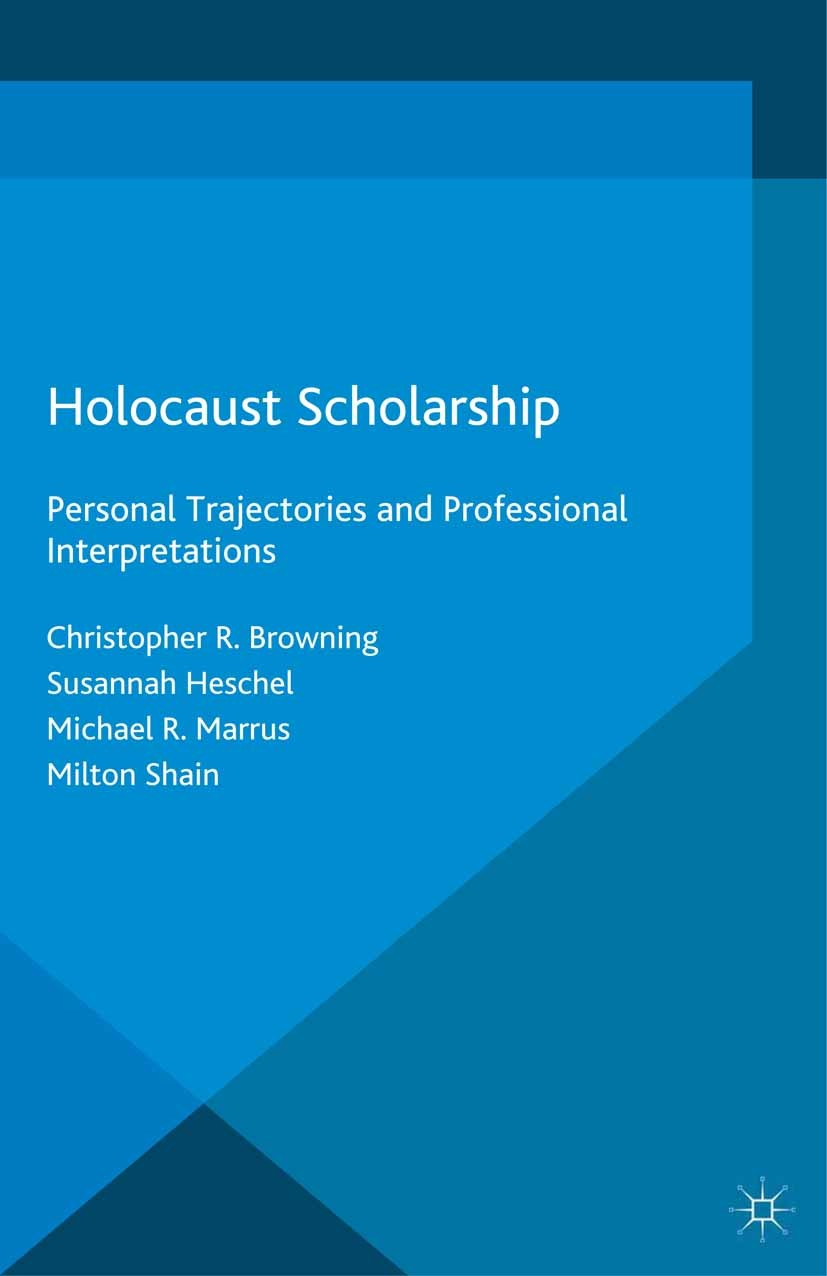| 书目名称 | Holocaust Scholarship |
| 副标题 | Personal Trajectorie |
| 编辑 | Christopher R. Browning,Susannah Heschel,Milton Sh |
| 视频video | http://file.papertrans.cn/428/427917/427917.mp4 |
| 图书封面 |  |
| 描述 | Leading international Holocaust scholars reflect upon their personal experiences and professional trajectories over many decades of immersion in the field. Changes are examined within the context of individual odysseys, including shifting cultural milieus and robust academic conflicts. |
| 出版日期 | Book 2015 |
| 关键词 | Holocaust; Holocaust Debates; South Africa; Nazism; Africa; antisemitism; history |
| 版次 | 1 |
| doi | https://doi.org/10.1057/9781137514196 |
| isbn_ebook | 978-1-137-51419-6 |
| copyright | The Editor(s) (if applicable) and The Author(s) 2015 |
 |Archiver|手机版|小黑屋|
派博传思国际
( 京公网安备110108008328)
GMT+8, 2025-12-30 23:17
|Archiver|手机版|小黑屋|
派博传思国际
( 京公网安备110108008328)
GMT+8, 2025-12-30 23:17


